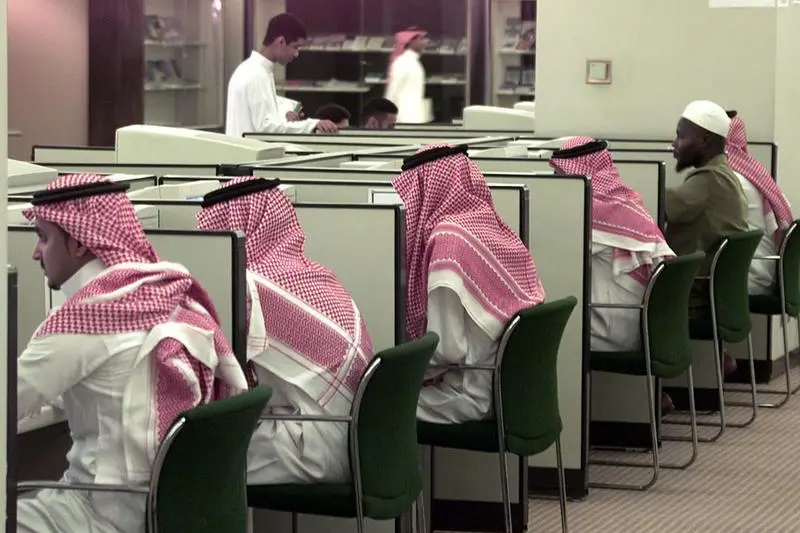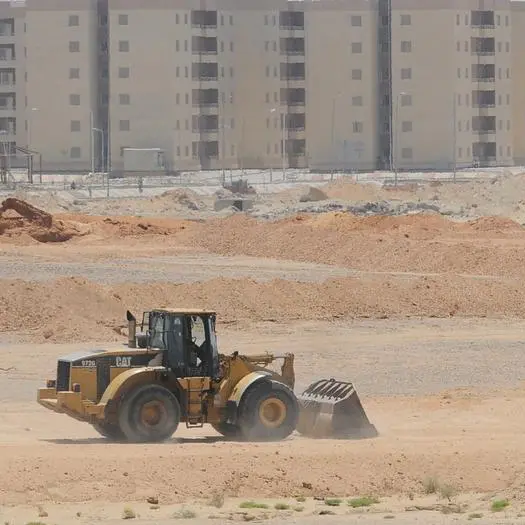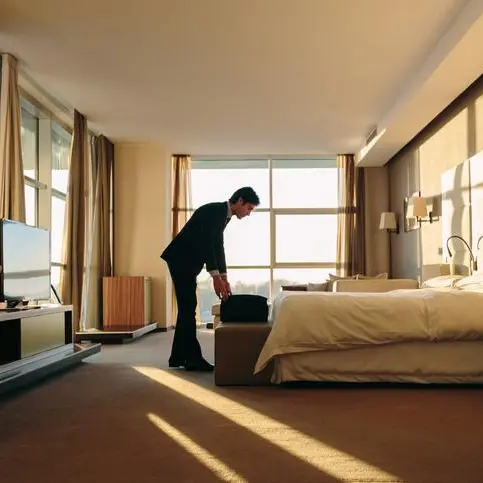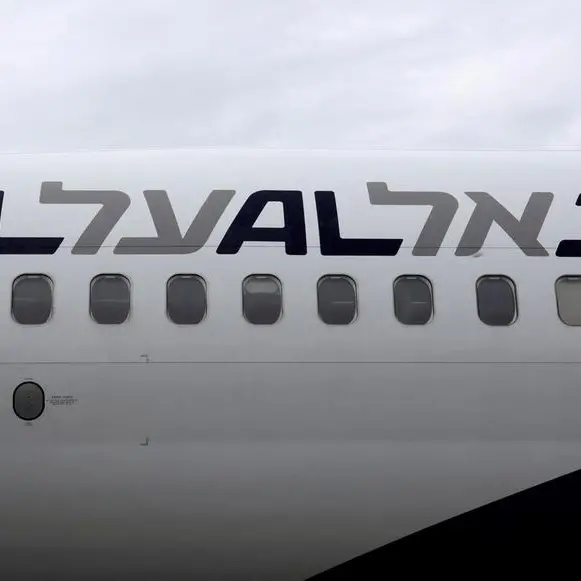PHOTO
* Saudis among biggest social media users among Arabs
* Senior officials fired after social media criticism
* Government using social media to speak to youth
By Sylvia Westall and Angus McDowall
DUBAI/RIYADH, May 24 (Reuters) - The participation of tens of thousands of young Saudis in a social media debate over plans to reform the kingdom's oil-reliant economy last month marked a shift in how Riyadh's conservative rulers interact with their subjects.
Saudi Arabia's dynastic leaders, who rule by fiat and strictly limit public dissent, have historically courted public opinion only via informal councils with tribal, religious and business leaders or citizens seeking to petition them.
But in one of the most active countries on social media in the Arab world, the ruling Al Saud have started trying to shape the online debate with carefully managed media campaigns and senior officials have been sacked after social media criticism.
"It's a new focus for the government as it reaches out to a young Saudi population that is more likely to use social media," Saudi analyst and commentator Mohammed Alyahya said. "That's the most effective way to capture their attention."
One recent showcase for this was the launch of 31-year-old Deputy Crown Prince Mohammed bin Salman's Vision 2030 reform plans, which used Twitter alongside traditional media to build anticipation and introduce hashtags - key discussion phrases.
"A strong and determined country with a connection between the government and the citizen," one of the slogans read.
Some 190,000 Twitter users in Saudi Arabia actively took part in the ensuing debate over Vision 2030, generating more than 860,000 messages according to France-based social media monitor Semiocast.
This meant the discussion reached 46 percent of the 7.4 million active Twitter users in the kingdom, Semiocast said, describing this level of outreach in a state-sponsored debate as exceptional.
SOCIAL MEDIA STORMS
There is good reason for the sensitivity: since 2012 social media storms in Saudi Arabia over government policies or the actions of senior officials have culminated in the sacking of senior people on at least five occasions.
The level of participation means even ministers without social media accounts invest time and money monitoring what people say about them online, said Diya Murra, a Riyadh-based account director for social media agency The Online Project.
"People are holding them accountable for things that are being done or not," he said.
Social media use among the 21 million Saudis and roughly 10 million foreign residents of the kingdom cuts across political and religious lines: keenly followed social media users include both strict Muslim clerics and self-described liberals.
In a country in which debate has traditionally been strictly regulated by state decree and cultural tradition, and in which gender mixing is often illegal, social media has allowed many young Saudis to interact in ways that were impossible before.
Twitter is most popular among 18 to 24-year-olds in Saudi Arabia, followed closely by users in their late 20s to early 40s and its useage is split roughly between men and women, according to iMENA Digital, which serves clients in Saudi Arabia. It said photo-sharing site Instagram has become the leading channel among young Saudis, around three-quarters of them women.
ONLINE DISSENT
Speaking at a packed discussion about Twitter in an expensive Riyadh hotel last month, Saudi Foreign Minister Adel al-Jubeir said the platform was not always an accurate barometer of public opinion, but that it could help track trends.
"It is direct. There are no barriers," he told the largely young audience, who were segregated by gender.
However, he and other Gulf Arab politicians speaking at the forum also said they were in favour of controls to prevent anonymous posting and of punishing users who broke taboos by criticising religion or calling to end monarchical rule.
Rights groups have criticised Saudi Arabia and its neighbours for jailing some who voiced dissent online, including Saudi blogger Raif Badawi, who was sentenced to 1,000 lashes and 10 years in prison for a "cyber crime" of insulting Islam.
He remains in prison 18 months after sentencing, but no more than 50 lashes were carried out. When asked about Badawi in May, Jubeir told a news conference the case was complicated and involved civil lawsuits that did not involve the government.
On Monday, a Riyadh court sentenced a man to 80 lashes for Tweets that carried "insults to the country", as well as for drinking alcohol, Okaz daily reported.
Diplomats in Riyadh say while the judiciary has given harsh sentences to online dissenters who drew the anger of hardliners, the police routinely ignore on social media far more severe criticism of senior people than was ever allowed before.
The growing influence of social media became apparent in 2012 when the late King Abdullah sacked the religious police chief and replaced him with a relative progressive after a viral video showed members of the body harassing a family in a mall.
CULTURE OF RESPECT
In April 2014, as a deadly outbreak of Middle East Respiratory Syndrome (MERS) swept Jeddah, anger over a perceived cover-up surged on social media and Abdullah sacked the health minister.
Since King Salman came to power in January 2015, such sensitivity seems to have only amplified. Another health minister, Ahmed al-Khateeb, widely regarded as a protege of the king, was dismissed after footage of him shouting at a Saudi citizen during a heated argument was captured on a smartphone.
Weeks later, Salman replaced his own head of royal protocol after he was caught on camera slapping a news cameraman covering the arrival of the Moroccan king in Riyadh.
It is a far cry from the days before widespread internet use in Saudi Arabia, when discussion was limited to informal meetings or to newspapers and television channels that rarely held officials to account or criticised government policies.
Still, a culture of public expressions of respect for government endures. More than a third of reactions to Vision 2030 on Twitter were positive, Semiocast said, adding the debate generated "patriotic pride" and expectations of progress.
The debate had been closely coordinated over various media and driven by influential Saudi personalities young people were already connected to, The Online Project's Murra said.
One was Omar Hussein, a young comedian popular on YouTube and with 1.5 million followers on Twitter. He promises in a video to explain the vision in three minutes. Filmed as a piece to camera it has been viewed more than a quarter of a million times.
He is careful to explain the plan as a vision, with a more concrete blueprint coming later, something observers say is important for managing expectations about the ambitious goals.
"The vision as it stands has very few concrete measurable outcomes to hold anyone accountable for," analyst Alyahya said. However, as programmes were developed to implement it, there would be performance indicators and ministers held responsible for meeting targets.
(Additional reporting by William Maclean, editing by Peter Millership) ((sylvia.westall@thomsonreuters.com; Dubai Newsroom +971 56 216 6204; Reuters Messaging: sylvia.westall.thomsonreuters.com@reuters.net))
* Senior officials fired after social media criticism
* Government using social media to speak to youth
By Sylvia Westall and Angus McDowall
DUBAI/RIYADH, May 24 (Reuters) - The participation of tens of thousands of young Saudis in a social media debate over plans to reform the kingdom's oil-reliant economy last month marked a shift in how Riyadh's conservative rulers interact with their subjects.
Saudi Arabia's dynastic leaders, who rule by fiat and strictly limit public dissent, have historically courted public opinion only via informal councils with tribal, religious and business leaders or citizens seeking to petition them.
But in one of the most active countries on social media in the Arab world, the ruling Al Saud have started trying to shape the online debate with carefully managed media campaigns and senior officials have been sacked after social media criticism.
"It's a new focus for the government as it reaches out to a young Saudi population that is more likely to use social media," Saudi analyst and commentator Mohammed Alyahya said. "That's the most effective way to capture their attention."
One recent showcase for this was the launch of 31-year-old Deputy Crown Prince Mohammed bin Salman's Vision 2030 reform plans, which used Twitter alongside traditional media to build anticipation and introduce hashtags - key discussion phrases.
"A strong and determined country with a connection between the government and the citizen," one of the slogans read.
Some 190,000 Twitter users in Saudi Arabia actively took part in the ensuing debate over Vision 2030, generating more than 860,000 messages according to France-based social media monitor Semiocast.
This meant the discussion reached 46 percent of the 7.4 million active Twitter users in the kingdom, Semiocast said, describing this level of outreach in a state-sponsored debate as exceptional.
SOCIAL MEDIA STORMS
There is good reason for the sensitivity: since 2012 social media storms in Saudi Arabia over government policies or the actions of senior officials have culminated in the sacking of senior people on at least five occasions.
The level of participation means even ministers without social media accounts invest time and money monitoring what people say about them online, said Diya Murra, a Riyadh-based account director for social media agency The Online Project.
"People are holding them accountable for things that are being done or not," he said.
Social media use among the 21 million Saudis and roughly 10 million foreign residents of the kingdom cuts across political and religious lines: keenly followed social media users include both strict Muslim clerics and self-described liberals.
In a country in which debate has traditionally been strictly regulated by state decree and cultural tradition, and in which gender mixing is often illegal, social media has allowed many young Saudis to interact in ways that were impossible before.
Twitter is most popular among 18 to 24-year-olds in Saudi Arabia, followed closely by users in their late 20s to early 40s and its useage is split roughly between men and women, according to iMENA Digital, which serves clients in Saudi Arabia. It said photo-sharing site Instagram has become the leading channel among young Saudis, around three-quarters of them women.
ONLINE DISSENT
Speaking at a packed discussion about Twitter in an expensive Riyadh hotel last month, Saudi Foreign Minister Adel al-Jubeir said the platform was not always an accurate barometer of public opinion, but that it could help track trends.
"It is direct. There are no barriers," he told the largely young audience, who were segregated by gender.
However, he and other Gulf Arab politicians speaking at the forum also said they were in favour of controls to prevent anonymous posting and of punishing users who broke taboos by criticising religion or calling to end monarchical rule.
Rights groups have criticised Saudi Arabia and its neighbours for jailing some who voiced dissent online, including Saudi blogger Raif Badawi, who was sentenced to 1,000 lashes and 10 years in prison for a "cyber crime" of insulting Islam.
He remains in prison 18 months after sentencing, but no more than 50 lashes were carried out. When asked about Badawi in May, Jubeir told a news conference the case was complicated and involved civil lawsuits that did not involve the government.
On Monday, a Riyadh court sentenced a man to 80 lashes for Tweets that carried "insults to the country", as well as for drinking alcohol, Okaz daily reported.
Diplomats in Riyadh say while the judiciary has given harsh sentences to online dissenters who drew the anger of hardliners, the police routinely ignore on social media far more severe criticism of senior people than was ever allowed before.
The growing influence of social media became apparent in 2012 when the late King Abdullah sacked the religious police chief and replaced him with a relative progressive after a viral video showed members of the body harassing a family in a mall.
CULTURE OF RESPECT
In April 2014, as a deadly outbreak of Middle East Respiratory Syndrome (MERS) swept Jeddah, anger over a perceived cover-up surged on social media and Abdullah sacked the health minister.
Since King Salman came to power in January 2015, such sensitivity seems to have only amplified. Another health minister, Ahmed al-Khateeb, widely regarded as a protege of the king, was dismissed after footage of him shouting at a Saudi citizen during a heated argument was captured on a smartphone.
Weeks later, Salman replaced his own head of royal protocol after he was caught on camera slapping a news cameraman covering the arrival of the Moroccan king in Riyadh.
It is a far cry from the days before widespread internet use in Saudi Arabia, when discussion was limited to informal meetings or to newspapers and television channels that rarely held officials to account or criticised government policies.
Still, a culture of public expressions of respect for government endures. More than a third of reactions to Vision 2030 on Twitter were positive, Semiocast said, adding the debate generated "patriotic pride" and expectations of progress.
The debate had been closely coordinated over various media and driven by influential Saudi personalities young people were already connected to, The Online Project's Murra said.
One was Omar Hussein, a young comedian popular on YouTube and with 1.5 million followers on Twitter. He promises in a video to explain the vision in three minutes. Filmed as a piece to camera it has been viewed more than a quarter of a million times.
He is careful to explain the plan as a vision, with a more concrete blueprint coming later, something observers say is important for managing expectations about the ambitious goals.
"The vision as it stands has very few concrete measurable outcomes to hold anyone accountable for," analyst Alyahya said. However, as programmes were developed to implement it, there would be performance indicators and ministers held responsible for meeting targets.
(Additional reporting by William Maclean, editing by Peter Millership) ((sylvia.westall@thomsonreuters.com; Dubai Newsroom +971 56 216 6204; Reuters Messaging: sylvia.westall.thomsonreuters.com@reuters.net))





















